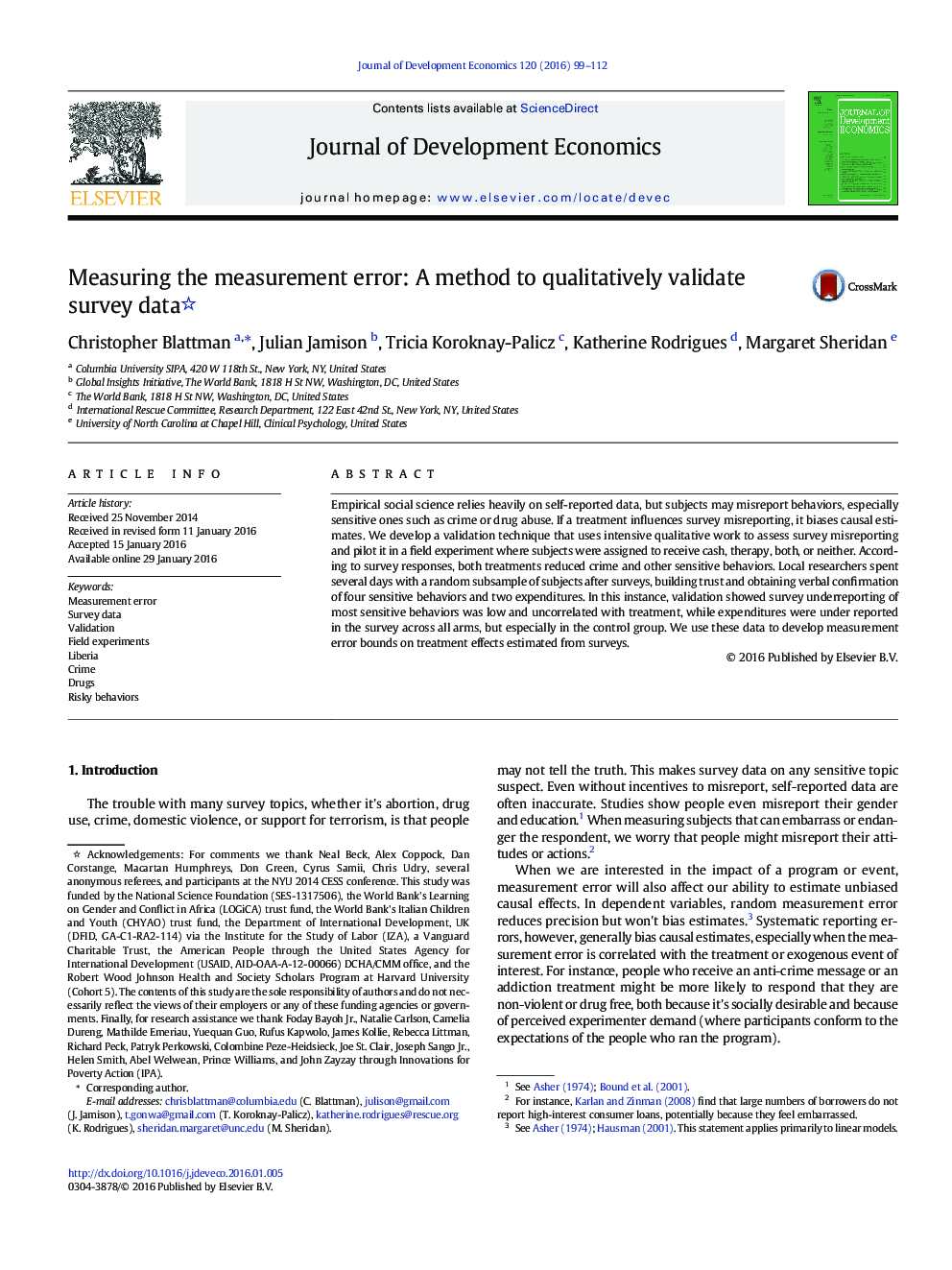| کد مقاله | کد نشریه | سال انتشار | مقاله انگلیسی | نسخه تمام متن |
|---|---|---|---|---|
| 5094284 | 1478491 | 2016 | 14 صفحه PDF | دانلود رایگان |
• We develop and test a new technique for validating self-reported data.
• We use intensive qualitative study in a random subsample to validate key outcomes.
• Results suggest the control group underreported sensitive behaviors and expenditures.
• Hence the impacts of an anti-crime experiment may be larger than implied by surveys.
• Meanwhile the impact on expenditures may be lower than implied by surveys.
Empirical social science relies heavily on self-reported data, but subjects may misreport behaviors, especially sensitive ones such as crime or drug abuse. If a treatment influences survey misreporting, it biases causal estimates. We develop a validation technique that uses intensive qualitative work to assess survey misreporting and pilot it in a field experiment where subjects were assigned to receive cash, therapy, both, or neither. According to survey responses, both treatments reduced crime and other sensitive behaviors. Local researchers spent several days with a random subsample of subjects after surveys, building trust and obtaining verbal confirmation of four sensitive behaviors and two expenditures. In this instance, validation showed survey underreporting of most sensitive behaviors was low and uncorrelated with treatment, while expenditures were under reported in the survey across all arms, but especially in the control group. We use these data to develop measurement error bounds on treatment effects estimated from surveys.
Journal: Journal of Development Economics - Volume 120, May 2016, Pages 99–112
